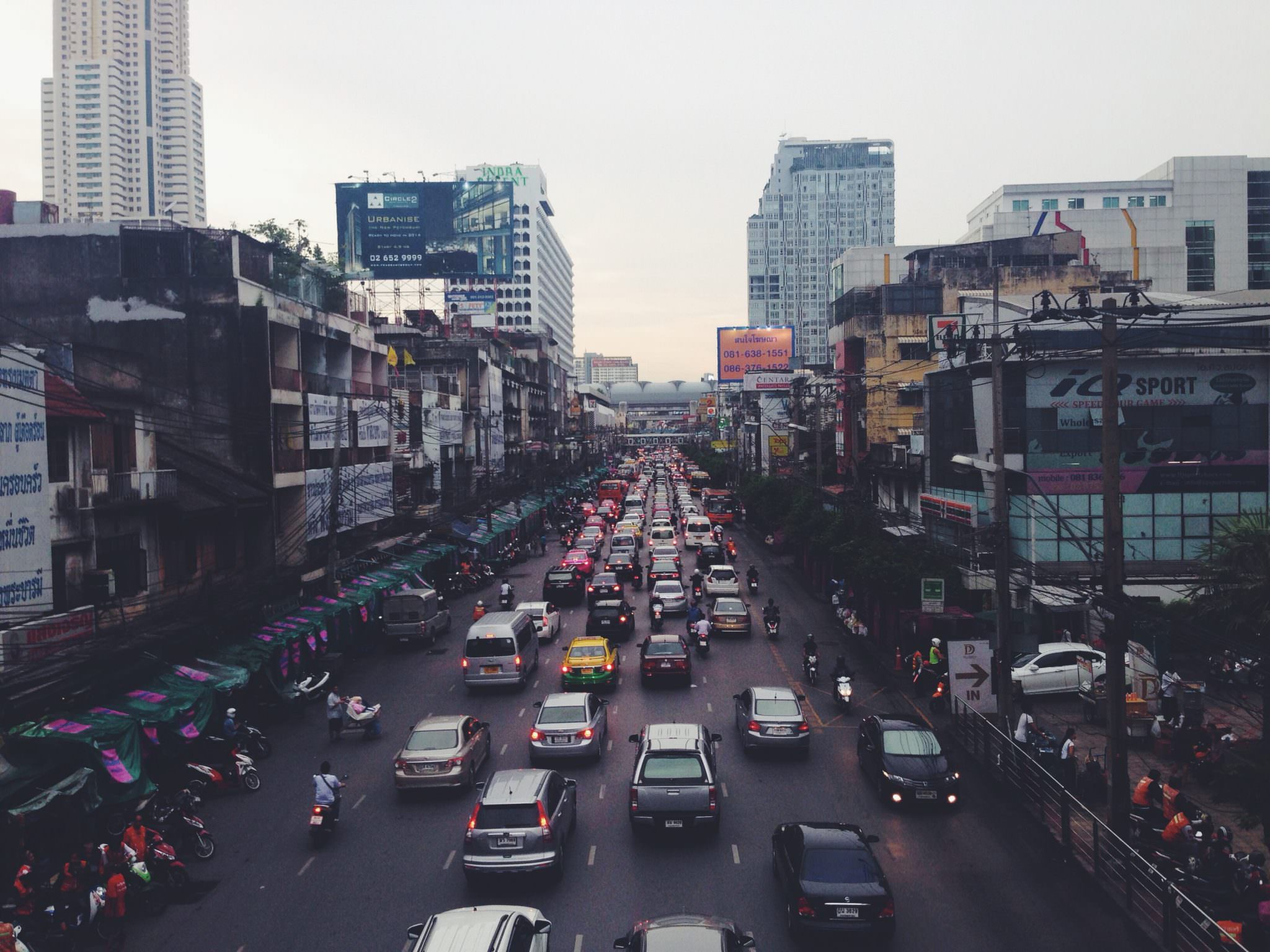How Capitalism and Globalization Have Made the World a Better Place
As the world has become more capitalist and more globalized, the quality of life for the average person, and especially for the average poor person, has increased substantially.

Throughout this week, the hashtag #ResistCapitalism was trending on Twitter. Using this hashtag, activists have aired their grievances against an economic system which they deem to be destructive, unfair, and immoral. In their view, the growth of global capitalism experienced over the last few decades has been only detrimental to human well-being. Indeed, since the early 1990s, global capitalism has lapsed into “its most savage form,” according to progressive populist Naomi Klein.
In fact, the expansion of capitalism and freer international trade has coincided with an era of slow economic growth, high unemployment, increased child labor, skyrocketing inequality, and grinding poverty.
Just kidding, that’s not what happened at all. In fact, as the world has become more capitalist and more globalized, the quality of life for the average person, and especially for the average poor person, has increased substantially. In 1990, 37% of the global population lived on less than $1.90 per day. By 2012, that number had been reduced to 12.8%, and in 2015 it was under 10%. The source of this progress isn’t a massive wealth redistribution program; it’s massive wealth creation — that is, economic growth.
Economists David Dollar and Aart Kraay found that, in a global sample of over 100 countries, changes in the income growth of the bottom 40% of the world’s income earners are highly correlated with economic growth rates. On the other hand, changes in inequality contributed relatively little to changes in social welfare of the poor over the last few decades.
There is good reason to believe that the expansion of free trade, facilitated by international organizations like the World Trade Organization (WTO) and its predecessor, the General Agreement on Tariffs and Trade (GATT), have had a considerable impact in accelerating the economic development of developing countries.
In the 1990s GATT facilitated reforms which moved 125 countries towards freer trade by reducing the burden of government imposed trade barriers like tariffs. This was the first serious attempt at trade reform for most developing countries at the time, and arguably presents a unique natural experiment on the economic effects of trade reform.
In fact, a paper published by the National Bureau of Economic Research (NBER), specifically examined how trade reforms facilitated by GATT affected the economic development of the reforming countries. In the paper, the authors compared the trends in economic growth before and after trade reform in the reforming countries. Then they compared those results to trends in economic growth of a control group of countries which didn’t undergo trade reform.
What they found was very encouraging for proponents of free trade. Prior to reform, the economic development of reformers and non-reformers was practically identical, but after reform, the economic development of reforming countries accelerated while non-reforming countries saw their economies stagnate and decline. The results suggest that the reforms towards freer trade lead to an increase in income per capita of around 20% in the long-run, an effect so large that it almost certainly had a positive and non-trivial impact on poverty reduction.
Similarly, other research has shown that more free market trade policies result in lower rates of extreme poverty and child mortality in developing countries. There are other benefits as well. One study on trade reform in Indonesia found that reductions of import tariffs led to an increase in disposable income among poor households, which allowed them to pull their children out of the labor force, leading to “a strong decline” in the incidence of child labor.
Unfortunately, many activists have reflexively taken up the cause of opposing the expansion of global capitalism, for a number of reasons. Western anti-sweatshop activists, for example, will often argue in favor of government imposed barriers to trade with poor countries because their working conditions are terrible in comparison to those in developed Western nations. In their view, western consumers should not be promoting a cycle of capitalist exploitation by buying products made in Vietnamese sweat-shops.
But satisfactory working conditions aren’t the natural state of mankind; they are a consequence of decades of economic development. Erecting barriers to trade with poor countries is surely a large impediment to their development, in fact, research suggests that existing developed world tariffs depress economic growth rates in the developing world by 0.6 to 1.6 percent per person, a considerably large effect.
Moreover, the sweat-shops which produce clothing for Westerners are often much better than alternative forms of domestic employment. In poor countries like Bangladesh, China, and Vietnam, the apparel industry consistently pays more than most other domestic industries. According to research by economist Ben Powell, in poor countries “most sweatshop jobs provide an above average standard of living for their workers.”
Notably, a paper published in the Journal of Development Economics found that the expansion of the garments industry in Bangladesh lead to an increase in employment and income among young women, giving them the means to finance their own education. Remarkably the authors found that, “the demand for education generated through manufacturing growth appears to have a much larger effect on female educational attainment compared to a large-scale government conditional cash transfer program to encourage female schooling.”

Foreign investment is also more desirable than opponents of capitalism and globalization give it credit for. The conventional wisdom among activists in wealthy countries is that multinational corporations exploit poor workers in third world countries for cheap labor, profiting off people working in sweatshop conditions.
It should come as a surprise to the individuals who hold this view to learn that 85% of people in developing countries believe that foreign companies building factories in their countries is a good thing, according to Pew Research.
In fact, for all the talk of exploitative multinational corporations, research shows that, in general, these corporations provide higher wages and better working conditions than domestic employers in developing countries.
Additionally, when multinational corporations build factories in poor countries, it raises the demand for low-skilled workers, resulting in higher wages for local workers. Consistent with this fact, recent empirical evidence demonstrates that investment by foreign companies in developing countries reduces both poverty and income inequality by raising the incomes of low-skilled workers.
Foreign investment can also make people in relatively low-income countries better off by providing better or more inexpensive products. A recent analysis published by the NBER found that foreign retailers like Wal-Mart greatly reduce the cost of living for both the rich and poor in Mexico, making everyone along the income distribution better off.
Global capitalism is by no means a perfect phenomenon. Many businesses do have questionable labor practices that are worthy of contempt. And free market policies may in many instances lead to socially undesirable outcomes, sometimes on a large scale.
However, the one-dimensional, automatic denunciation of capitalism and the accompanying refusal to give it any credit for its successes — as social media activists have done — reflects an uncompromising, and quite frankly ignorant worldview. It is one in which capitalism is always bad, no matter what the evidence tells us.






